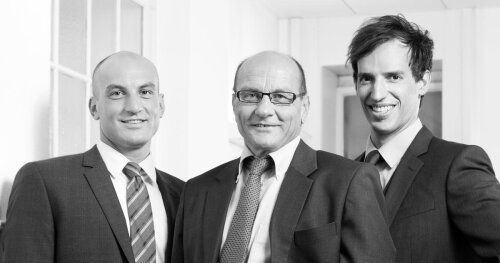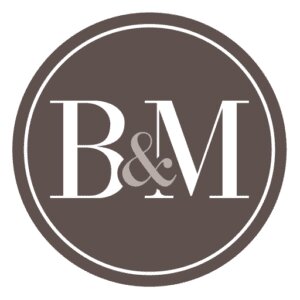Best Trusts Lawyers in Lucerne
Share your needs with us, get contacted by law firms.
Free. Takes 2 min.
List of the best lawyers in Lucerne, Switzerland
About Trusts Law in Lucerne, Switzerland
Trusts law in Lucerne, Switzerland, governs the creation, management, and termination of trusts. Although the concept of trusts originates from common law countries like the UK, Switzerland has adapted it through various legal frameworks, especially in international contexts. Lucerne, being one of the prominent cantons, adheres to these frameworks while ensuring compliance with local civil law principles. Trusts can be employed for various purposes, including estate planning, asset protection, charity, and securing the future of beneficiaries.
Why You May Need a Lawyer
Engaging a lawyer proficient in trusts can be crucial for several reasons:
- Estate Planning: If you aim to seamlessly transfer your assets to beneficiaries, a lawyer can help set up a trust that aligns with your wishes and adheres to legal requirements.
- Asset Protection: Trusts can protect assets from creditors, litigation, or unstable financial environments; legal expertise is essential for structuring such arrangements effectively.
- Business Succession: For business owners, setting up a trust for succession planning can ensure smooth transitions while adhering to applicable laws.
- Tax Planning: Trusts may have tax implications that a lawyer can navigate to optimize tax efficiency.
- Dispute Resolution: In instances of disagreement over trust terms or management, legal guidance is crucial for conflict resolution.
Local Laws Overview
Several local laws and international agreements influence the establishment and management of trusts in Lucerne:
- Swiss Federal Act on International Private Law (IPRG): This law is significant for trusts since it designates applicable foreign laws, including those related to trusts, in Switzerland.
- Hague Convention on Trusts: Switzerland is a signatory to this convention, which regulates the recognition and operation of trusts globally, impacting how trusts are recognized in Lucerne.
- Swiss Civil Code: While it does not specifically address trusts, its general provisions on property, inheritance, and obligations may apply to trust-related matters.
Frequently Asked Questions
1. What is a trust?
A trust is a legal arrangement where a trustee holds and manages assets on behalf of one or more beneficiaries. It can be used for estate planning, asset protection, and other purposes.
2. Can foreigners set up trusts in Lucerne?
Yes, foreigners can set up trusts in Lucerne, especially by utilizing international trust laws recognized under the Hague Convention on Trusts.
3. How are trusts taxed in Lucerne?
Trusts in Lucerne may have various tax implications, including inheritance tax, wealth tax, and income tax on trust earnings. Consulting a tax lawyer is advisable for specific tax planning.
4. Who can be a trustee?
A trustee can be an individual or a legal entity, such as a trust company, responsible for managing the trust's assets according to the trust deed's terms.
5. What is the role of a beneficiary?
A beneficiary is someone designated to benefit from the trust. They may receive income or principal from the trust assets according to the terms set by the trustor.
6. Is a trust irrevocable in Lucerne?
Trusts can be either revocable or irrevocable. This depends on the terms set out in the trust deed. It's essential to consult with a legal expert to understand the implications of each.
7. Are trusts publicly registered in Switzerland?
No, trusts are generally private arrangements and are not registered publicly, which helps maintain the confidentiality of the involved parties and assets.
8. Can a trust own property in Lucerne?
Yes, a trust can own property in Lucerne. The trustee holds the legal title to the property on behalf of the beneficiaries.
9. How does a trust end?
A trust can terminate based on conditions specified in the trust deed, such as a specific date, the occurrence of an event, or by mutual agreement of the involved parties.
10. What happens if a trustee breaches their duty?
If a trustee breaches their fiduciary duties, legal action can be taken by the beneficiaries to seek remedies, which might include compensation or the replacement of the trustee.
Additional Resources
Here are some resources and organizations that can be useful:
- Swiss Bar Association (SAV/FSA): Offers a directory of certified lawyers experienced in trust law.
- Lucerne Cantonal Administration: Provides information on local regulations that may affect trusts.
- The Hague Conference on Private International Law: Provides comprehensive information on the Hague Convention on Trusts.
- Swiss Fiduciary Association: Lists fiduciary services and professionals that can assist with trust administration.
Next Steps
If you need legal assistance with trusts in Lucerne:
- Consult a Specialist: Seek a lawyer who specializes in trust law. You can start by contacting the Swiss Bar Association or local legal directories.
- Initial Consultation: Arrange an initial consultation to discuss your specific needs, goals, and circumstances.
- Gather Relevant Documents: Prepare and organize all necessary documents that might be pertinent to setting up or managing a trust.
- Understand Costs: Clarify the fee structure and costs associated with legal services to avoid any surprises.
- Proceed with Trust Setup or Management: Work with your lawyer to draft the trust deed, manage the assets, or address any disputes effectively.
Lawzana helps you find the best lawyers and law firms in Lucerne through a curated and pre-screened list of qualified legal professionals. Our platform offers rankings and detailed profiles of attorneys and law firms, allowing you to compare based on practice areas, including Trusts, experience, and client feedback.
Each profile includes a description of the firm's areas of practice, client reviews, team members and partners, year of establishment, spoken languages, office locations, contact information, social media presence, and any published articles or resources. Most firms on our platform speak English and are experienced in both local and international legal matters.
Get a quote from top-rated law firms in Lucerne, Switzerland — quickly, securely, and without unnecessary hassle.
Disclaimer:
The information provided on this page is for general informational purposes only and does not constitute legal advice. While we strive to ensure the accuracy and relevance of the content, legal information may change over time, and interpretations of the law can vary. You should always consult with a qualified legal professional for advice specific to your situation.
We disclaim all liability for actions taken or not taken based on the content of this page. If you believe any information is incorrect or outdated, please contact us, and we will review and update it where appropriate.










